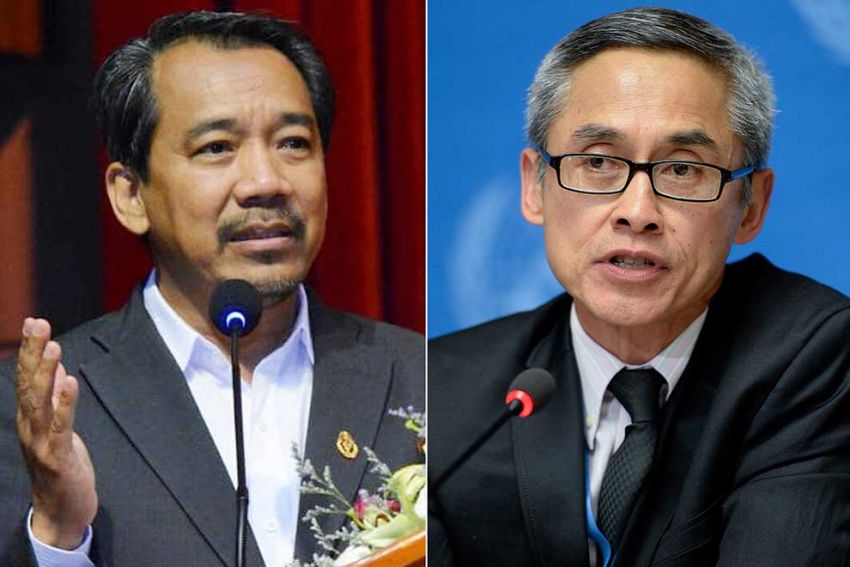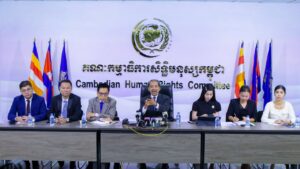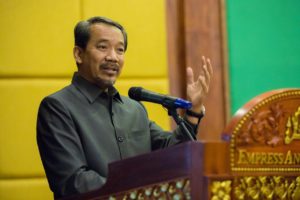CHRC ទាំងអស់បានកំណត់ដើម្បីជជែកពិភាក្សាអំពីរបាយការណ៍សិទ្ធិជាមួយក្រុមអ្នកជំនាញរបស់អង្គការសហប្រជាជាតិ
The Cambodian Human Rights Committee (CHRC) will defend the government’s National Human Rights Report on the implementation of the International Covenant on Civil and Political Rights at the UN Office in Geneva, Switzerland, in March.
CHRC vice-president Chin Malin told The Post that defending the national human rights report was one of Cambodia’s international obligations because the Kingdom is a signatory to the International Covenant on Civil and Political Rights.
Malin added that as per procedure, the CHRC submitted the nearly 40-page fifth round report written in English to the UN in 2019.
He said the UN’s expert committee reviewed Cambodia’s report and sent a number of queries for further clarification and written responses from the CHRC.
According to Malin, the next task is for Cambodia to defend the report in front of the expert committee in March in Switzerland where direct discussion and debate could occur in addition to submission of Cambodia’s written report related to civil and political rights.
“Thus, the CHRC has organised an inter-ministerial delegation, and on behalf of the vice-chairman of the CHRC … [I will assist with the] defence of the report directly through discussion, debate and clarification on each point regarding the implementation of civil and political rights in Cambodia,” he said.
Am Sam Ath, deputy director of rights group Licadho, said the five fundamental rights of civil, political, economic, social and cultural rights were still facing challenges in Cambodia.
He added, however, that the areas of socio-economic and cultural rights have been addressed somewhat with some solutions implemented and improvements made by the government over time.
Sam Ath said civil and political rights, in particular, have been controversial and the source of many disagreements in the past because the UN Human Rights Council, the EU and some other democratic countries see the right to participate in political life and civil rights in Cambodia as being in decline and restricted by the government.
Malin said the CHRC will defend the national report at the UN by explaining that the restrictions in place are not human rights issues because the matters they apply to spill over into politics.
He explained that from the government’s point of view, all of the legal actions that authorities have taken against “politically motivated” protests are not violations of human rights because those demonstrations are intended to destabilise society and tear at the social fabric of the Kingdom in order to make regime change outside of the electoral process a possibility.
“I’m still worried about these points because the UN seems to have this perception that there is a problem in Cambodia with its civil and political rights and seems to believe claims that these rights are facing challenges in the Kingdom or are on the decline,” he said.




